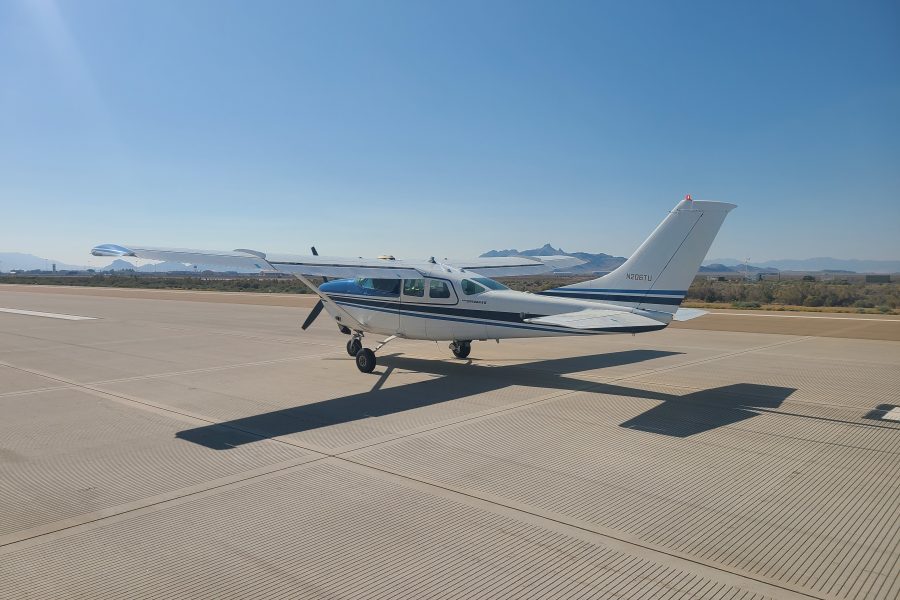The Air Force Research Laboratory’s robotic pilot has returned to the sky, following a mishap that grounded the system last year.
The AFRL Center for Rapid Innovation and DZYNE Technologies Incorporated’s ROBOPilot flew for about 2.2 hours on Sept. 24 at Dugway Proving Ground, Utah. The ROBOPilot system is added to the cockpit of a regular plane, with the system grabbing the yoke, flipping switches, and pushing rudders and brakes like a human pilot while also using sensors such as GPS and an Inertial Measurement Unit for situational awareness.
The system first flew in August 2019 on a Cessna 206, and in a later flight was damaged in a rough landing. A Safety Investigation Board convened to look at the incident, briefing AFRL and DZYNE, who then “analyzed the findings and incorporated the recommendations to ensure the success of the latest test,” said Marc Owens, the AFRL Center for Rapid Innovation’s program manager for ROBOpilot, in a release. “We determined the cause of the mishap, identified the best course of corrective action, and we’re very pleased [to] be flight testing again.”

Crews rebuilt the ROBOpilot for another Cessna 206, and had to meet the same initial test points to be able to conduct the successive test.
“ROBOpilot is too good an idea to let the mishap derail the development of the technology,” Owens said.
AFRL has said the system is a low-cost alternative to developing all-new unmanned aircraft. It is installed by removing a pilot’s seat, and using commercially produced components. ROBOpilot is currently developed for general aviation aircraft, and the service has not identified specific USAF airframes that could be targeted for its use, though it could be used for cargo planes, in turn freeing up pilots for other missions.
“ROBOpilot offers the benefits of unmanned operations without the complexity and upfront cost associated with the development of new unmanned vehicles,” Alok Das, a senior scientist with AFRL’s Center for Rapid Innovation, said in a 2019 release.

